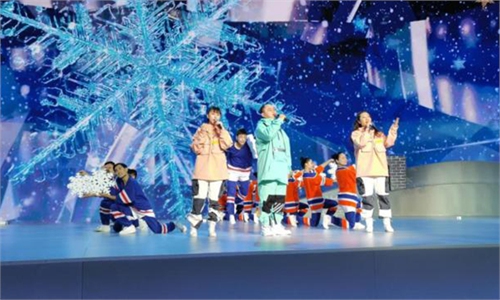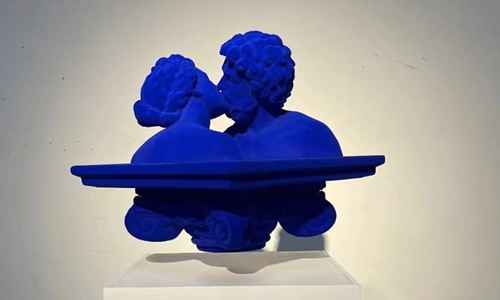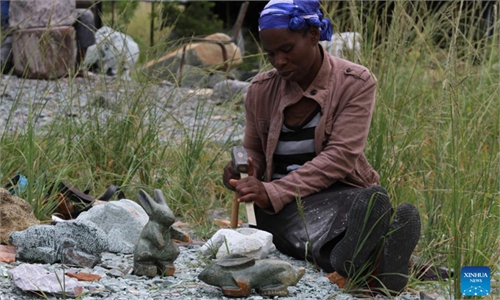ARTS / ART
Shanghai stage design studio turns rubbish into puppets to support the city’s recycling plans
Unwanted gems
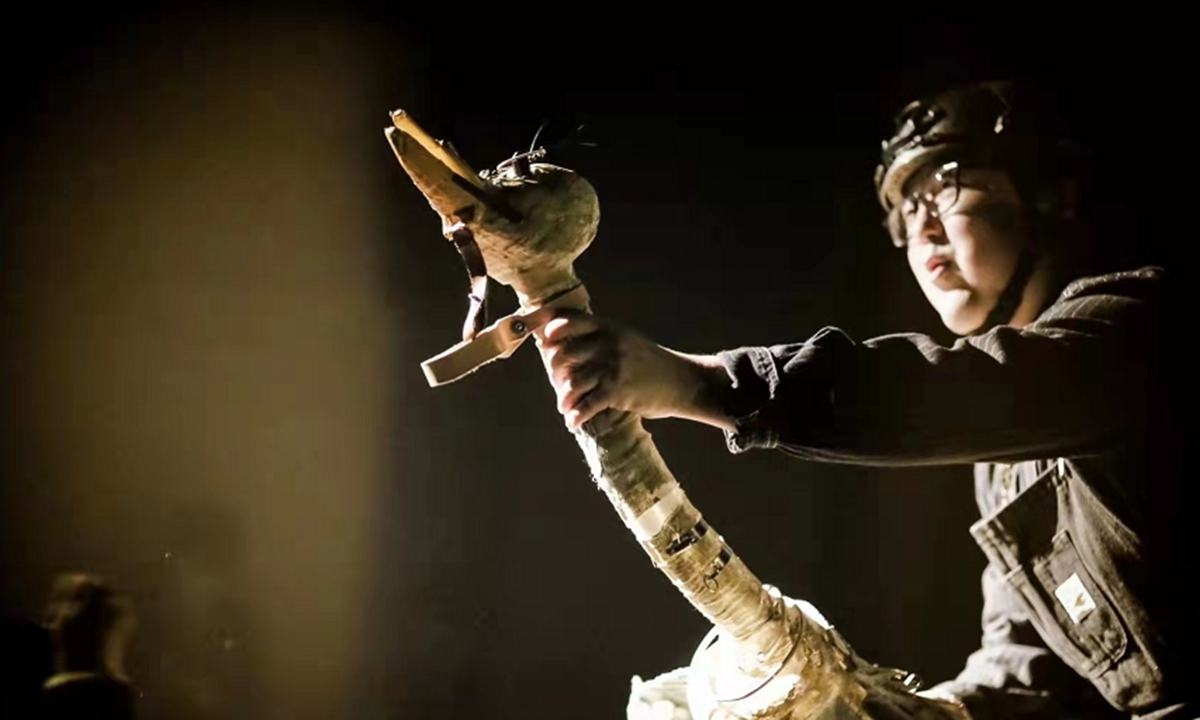
Yu Lei on stage with the bird Uwe Photo: Courtesy of Yu Lei
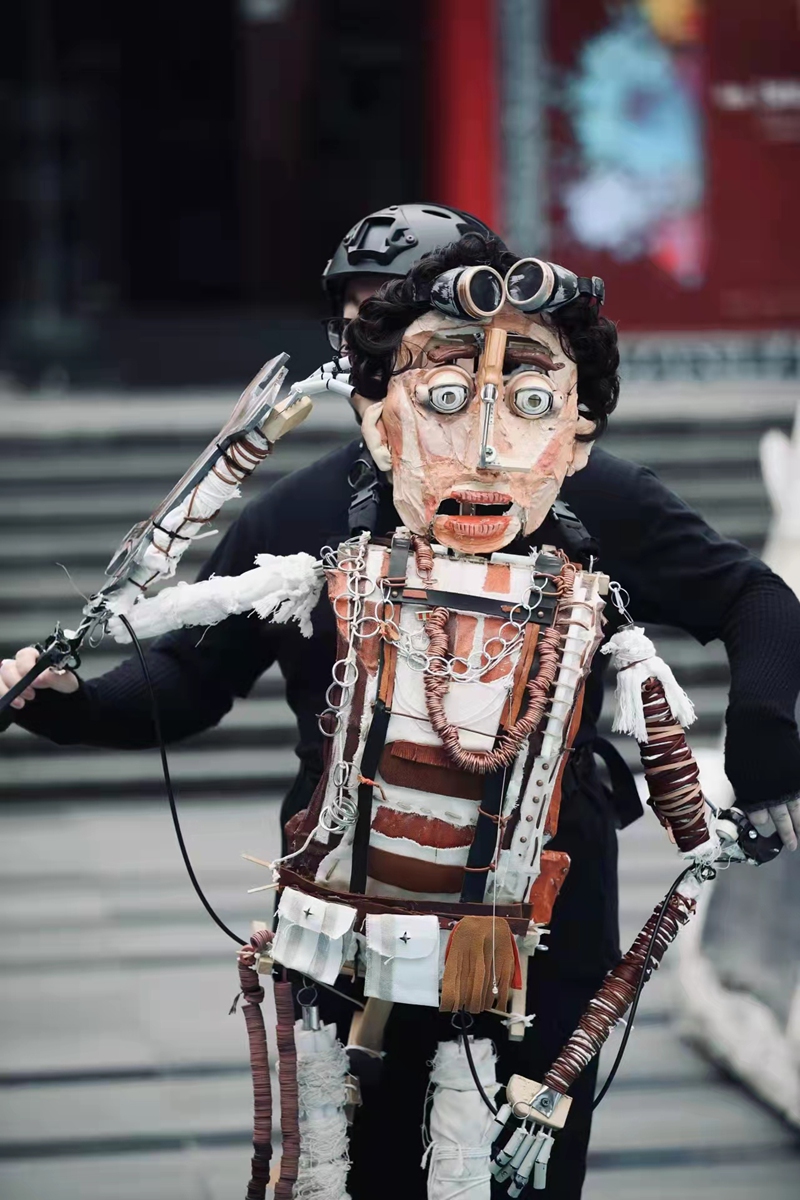
Yu Lei performs a street show in Shanghai with the puppets created by his team. Photo: Courtesy of Yu Lei
The Nonsense Factory is a stage puppet design studio launched by young creators in Shanghai. Although all of their creations have been made of everyday waste products, they are nevertheless gems that have not only been used in live stage plays across China, but also won support from the Shanghai municipal government and local community as they represent a creative solution that fits with the mega city's "green" plans.Behind the scenes
The studio was founded in 2022 by Yu Lei, Yu Weiyi and Wo Dele, three creative individuals from different walks of life who came together for the common pursuit of using everyday discarded items such as shampoo bottles and table legs to design characters for their own stage plays.
Before they met, Yu Lei, the core figure in the team who graduated from the Shanghai Theatre Academy with the aim of becoming a professional stage designer, had long been focused on using refuse in art because he noticed the inefficient use of stage props that only get to be used once, Yu explained to the Global Times.
The insider's ecological thinking inspired the other two members and in 2020 the three pitched their ambitious ideas as an entrepreneurial project at Yu's school. Not only did the school like their project, it got support from the local government, and in Yu's words, eventually led to the birth of their studio.
The studio is located at an entrepreneurship incubator park in the city's Jing'an district. The rent for the 30-square-meter space is subsidized by the local government.
"I can't gauge the piece numbers, but yeah, our studio is utterly stuffed," Yu noted.
Even though their job sounds freewheeling, it clearly requires vision and experience to be able to turn pieces of rubbish of all shapes and kinds into puppets, some of which can measure more than two meters tall.
Uwe is one such creation. The giant bird was built using a variety of latex buckets. Its long neck is shaped by sponge strips, and its head made of a bean paste box generously donated by Yu's mom. The Uwe bird is flexible too. The machine-operated design of its wings allows performers to move the character in a way that brings it to life. Such little tricks were mainly designed by Wo, a former computing expert.
"Like 10 tiny alcohol spray bottles that can make a necklace, our inspiration comes from seeing such things,." Yu explained.
"Such things are also collected from the local bird and flower market as well as the waste stations."
Before forming the studio in Shanghai, Yu also had experience in teaching "rubbish art" at a Chengdu primary school. He also played the role of an external teacher to the Shanghai institute of Visual Arts, teaching the subject of waste material research and puppet making.
"It was the idea of recycling waste in practice," Yu explained.
"When teaching kids, it is better to teach them how to make things; but for university students, the focus is on artistic expression and the materials themselves," noted Yu.
"Implementing such environmental ideas into a curriculum is no longer a novelty. But, the philosophy behind it has been changing. It used to be like a theme, but now it is becoming a course itself. This is related to the changing social value of the environment in current education," Xiong Xinyi, an educator in Beijing, told the Global Times.
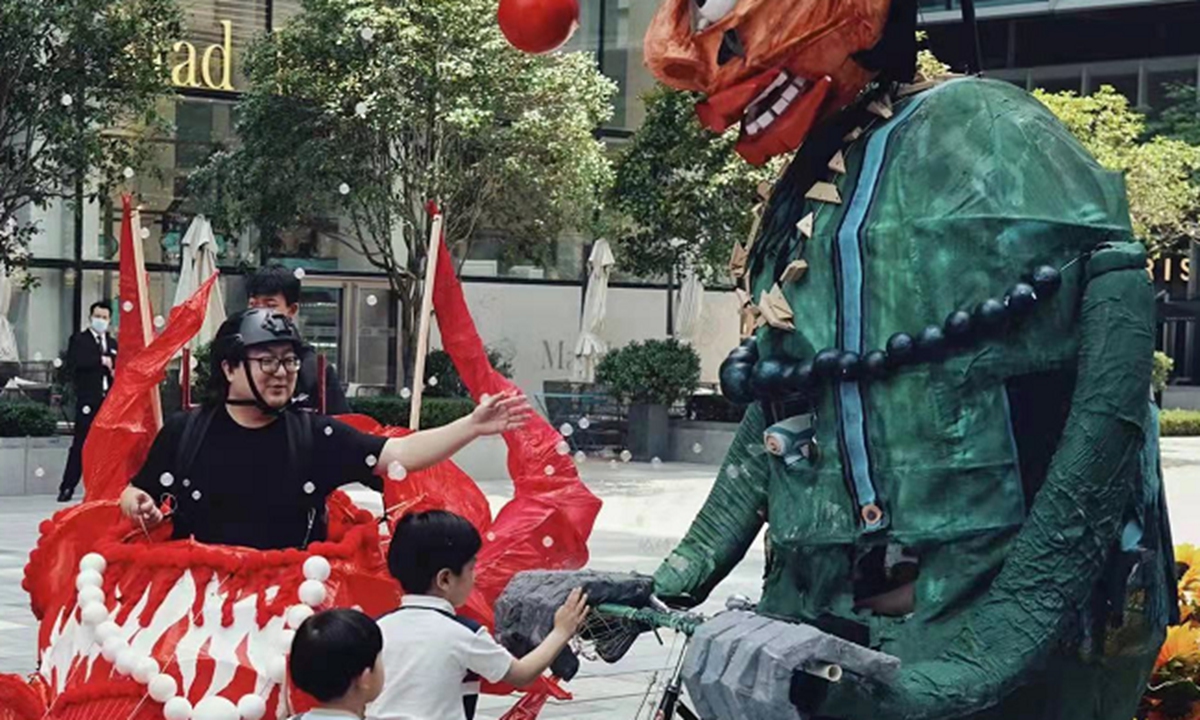
Yu Lei to bring his designs to street Photo: Courtesy of Yu Lei
On the stageWhile Yu noted that such handmade props can sometimes be quite flimsy and so can unexpectedly malfunction on stage, their performances with such puppets can still won audiences' hearts even after they have seen such problems.
"We improvise every single show, so the lines and performances are always different. Of course, there were problems with props on stage, but what we've seen the most is love from the audience and interesting questions," said Yu.
Ever since the studio's first show, Nonsense Production Factory, debuted in 2021 at the Cairo International Experimental Theatre Festival in Egypt, they have produced several other dramas such as the Uwe-led show Bosa and Uwe and City Myth: 18-Face Knight.
Their shows tell humorous, fairy-tale- like fantasies that attract audiences of all ages.
The creative team revealed to the Global Times that they are now working on two projects that are hugely inspired by Chinese culture.
Born in North China's Inner Mongolia Autonomous Region, Yu revealed to the Global Times that the team is writing a new script for a production related to the mysterious "devil" character Mang Gu Si that they hope to bring to the stage by the end of 2022.
In addition to their own projects, the team has also been making props for a client's new show inspired by the popular Chinese folk story The Legend of the White Snake. As Yu explained to the Global Times, this is the very first time that the team has worked on puppets inspired by Chinese culture and they are looking forward to the results.
"We are always thinking positive while making props and don't worry much about the results," Yu noted.
"We appreciate the social value people have given to them and so we want them to return to that child-like freedom of youth."
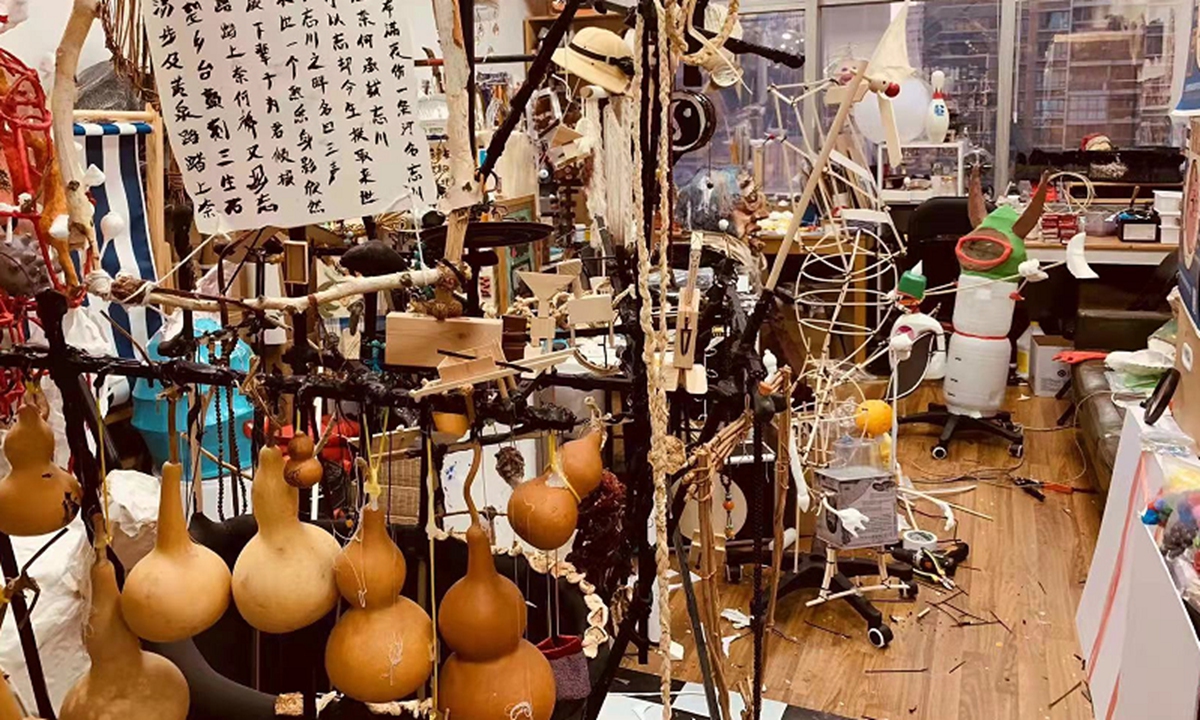
The studio Photo: Courtesy of Yu Lei
